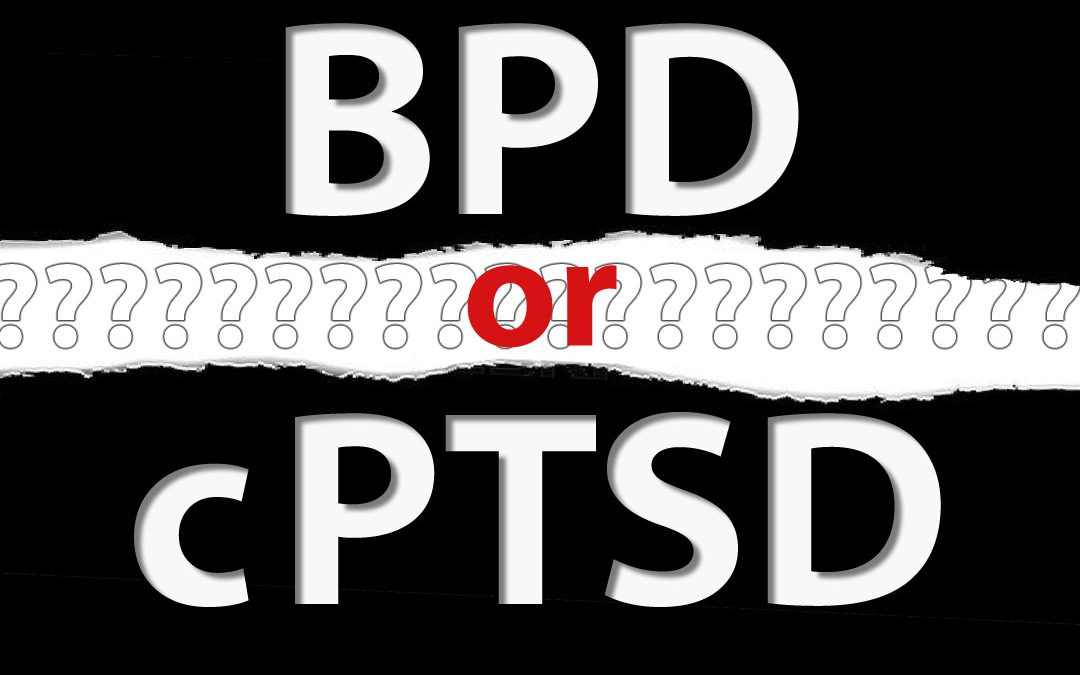I receive a number of emails, newsletters and other types of messages from organizations that report on mental health research. It’s a highly efficient and informative way to keep up with the ever quickening pace of discovery in the fields of psychology, psychiatry and neuroscience.
An intriguing article arrived in my mailbox the other day. It was published in the open access digital journal Borderline Personality Disorder and Emotion Dysregulation. The article presented the results of a meta-review (a review of existing studies) that addresses the question of whether or not Borderline Personality Disorder (BPD) and Complex Post Traumatic Stress Disorder (cPTSD) are, in fact, one and the same.
That question has been raised pretty much since cPTSD was first described in 1988. Some experts believe cPTSD is essentially a subtype of Post Traumatic Stress Disorder. Others believe that cPTSD is more akin to BPD, if not actually the same disorder.
It’s interesting to note that a number of academics, clinicians and researchers recommended that cPTSD be officially recognized in the DSM-4 – the American Psychiatric Association’s official Diagnostic and Statistical Manual. That request was denied by the editors for what they felt was a lack of definitive research supporting that premise. A similar effort for inclusion in the subsequent DSM-5 met the same fate.
Be forewarned that the review is written for a scientific audience. But if you can power through the jargon, I think you’ll find it a very thoughtful treatise about an important psychological issue.
Here’s a description of the study background from co-authors Julian Ford and Christine Courtois:
Four decades after complex post-traumatic stress disorder (cPTSD) was first defined and proposed as an alternative diagnosis to borderline personality disorder (BPD) for conceptualizing and treating the symptoms of adults who had suffered prolonged and severe interpersonal trauma, the validity and utility of cPTSD continues to be debated by mental health researchers. However, it is accepted by many clinical practitioners who view it as a less stigmatizing and possibly more accurate diagnosis than BPD. Seven years after a foundational review on cPTSD and BPD the relationship of cPTSD to BPD remains an open question.
You can read the review in its entirety in the latest edition of the journal.
But be forewarned… it’s a serious scientific paper and not very reader friendly for non-neuroscientists (that includes me). But if you power through it I think you’ll find many answers to whatever questions you may have about the relationship between cPTSD and BPD. And, as a bonus, you’ll learn a lot of new information about some of the most advanced discoveries regarding the complexities of the human brain and how we are or are not capable of regulating our emotions.
If that’s too deep a dive, there is a more consumer friendly discussion of the relationship among BPD, cPTSD and PTSD that can be found in Wikipedia
Regardless of which one you read, it turns out that while cPTSD and BPD do in fact share a number of similar symptomatic manifestations, including dissociation, emotion dysregulation, altered sense of self, and relationship difficulties, they are distinct disorders. However, it is not uncommon for BPD and cPTSD to be co-morbid, i.e, a person might exhibit several traits of each diagnosis. For some reason BPD occurs more often when cPTSD is the primary diagnosis than cPTSD occurs when BPD is the primary diagnosis.
As enlightening and exciting as research like this may be, the question remains: will the clinical implications and biological insights ultimately lead to more effective treatments?
There appears to be an innovative intervention being tested that may offer some hope: a pharmacological intervention based on the emerging science of epigenetics- manipulating a person’s DNA so that genetic instructions can be modified to produce more beneficial outcomes. In this case, reducing the intensity of the emotional dysregulation associated with both BPD and cPTSD; specifically agitation and aggressive behavior.
In the Fall of 2020, we reported the results of an early stage clinical trial of an epigenetic compound manufactured by Oryzon Genomics of Barcelona, Spain. The trial tested the effect of Vafidemstat in people diagnosed with BPD compared to people diagnosed with ADHD and people diagnosed with autism spectrum syndrome. Each of these disorders commonly feature agitation and aggressive behaviors at levels sufficient to disrupt a person’s daily life. Data showed that the effect of the compound was greatest among the BPD participants compared to the other two groups.
That posting received a lot of attention in our community of followers who either live with BPD or treat people that do. In addition to the lessening of agitation and aggressive behaviors there was also a significant reduction in suicidal ideation in the BPD patients. It should be noted that trait is not typically associated with the other two disorders. Overall, Vafidemstat was well tolerated and did not produce any severe adverse events among the study participants. You can read the full post here
This week Oryzon announced that they began enrolling people into a larger study solely made up of 156 people with Borderline Personality Disorder diagnosis. Half will receive Vafidemstat and the other half a placebo. The trial will compare any reductions in aggressive behaviors and overall improvements in BPD between the two groups of study participants.
The results of the won’t be announced for several months, but we will report on them as soon as they are made available.



